When Governor Udom Emmanuel set out to lubricate the once virgin well of agriculture in Akwa Ibom State with the establishment of Africa’s biggest coconut oil refinery, most people had no idea of coconut’s enormous potentials. But the Governor went ahead, displaying his propensity to plan towards an economy beyond crude oil, as if he knew that a certain Coronavirus pandemic would soon bring the world on its knees.

The St. Gabriel Coconut Oil Factory located in Ikot Akpan Okop, Mkpat Enin Local Government of the State is handled by VKS Nigeria Construction Limited. The factory which has a projected capacity of processing one million coconuts a day, will commence with a starting capacity of 300,000 coconuts daily. It was flagged off by Governor Emmanuel on May 24, 2017, as part of activities to mark his second year in Office. With a projection of being a future Nigeria might have to fall back on, the refinery project is visionary because of the multi-faceted use of the coconut. As Governor Emmanuel himself put it, the coconut has over 365 uses, implying that there is a different function for the coconut in each day of the year. In cosmetics products, automobiles industry, confectionery, physiotherapy, medicine and general catering, coconut asserts itself as the future the world had longed for.
In recent years, coconut oil has emerged as a potential ‘miracle’ food and source of revenue. Some health specialists and nutritionists have asserted that the coconut oil is capable of promoting health benefits, such as weight reduction, cholesterol lowering, prevention of cardiovascular diseases, and anti-inflammatory effect, among others.

The refinery project which is currently nearing completion has enjoyed the support of host communities, implying that they acceded to the Governor’s charge when he sued for the cooperation of youths in Ikot Abasi, Mkpat Enin and Eastern Obolo and sounded a note of warning to the leaders of the community to resist the temptation of harassing the contractors in order not to frustrate the progress of the factory. As a deal, during the flag off, the State House of Assembly member for Ikot Abasi / Eastern Obolo, Honourable Uduak Ududoh had registered the gratitude of his people to the governor for keeping his electoral promises of providing employment opportunities to indigenes of the area and assured of a pact of peace.
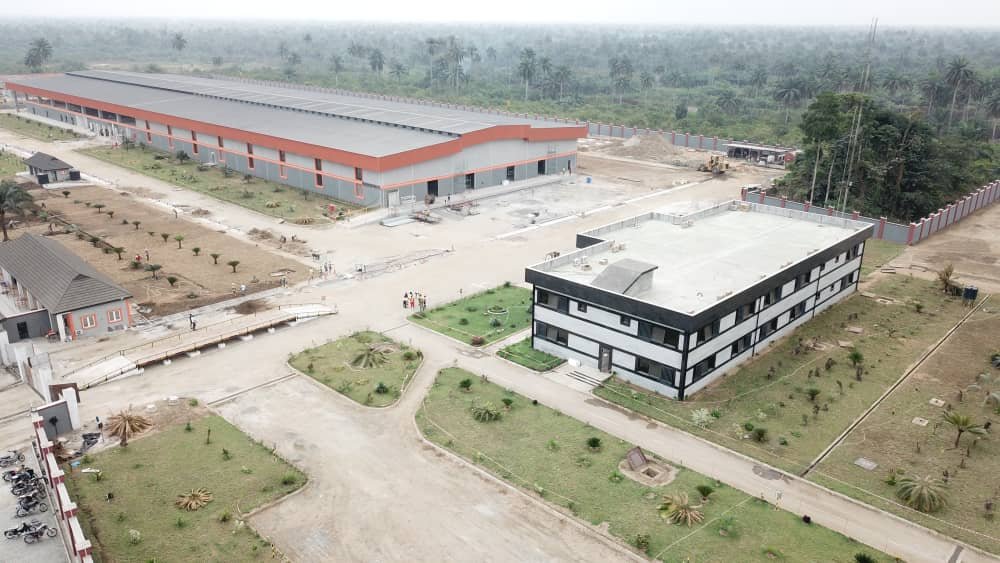
Indeed, the employment opportunities have been encouraging. The project manager, Mr Alper Yilmaz affirmed that eventhough at 80 percent completion no fewer than 1000 people had been engaged at various stages of the project execution which is currently at the state of production line installation. Before the current pandemic, some production lines had arrived and installations are underway, albeit hampered by the Covid-19 lockdown.
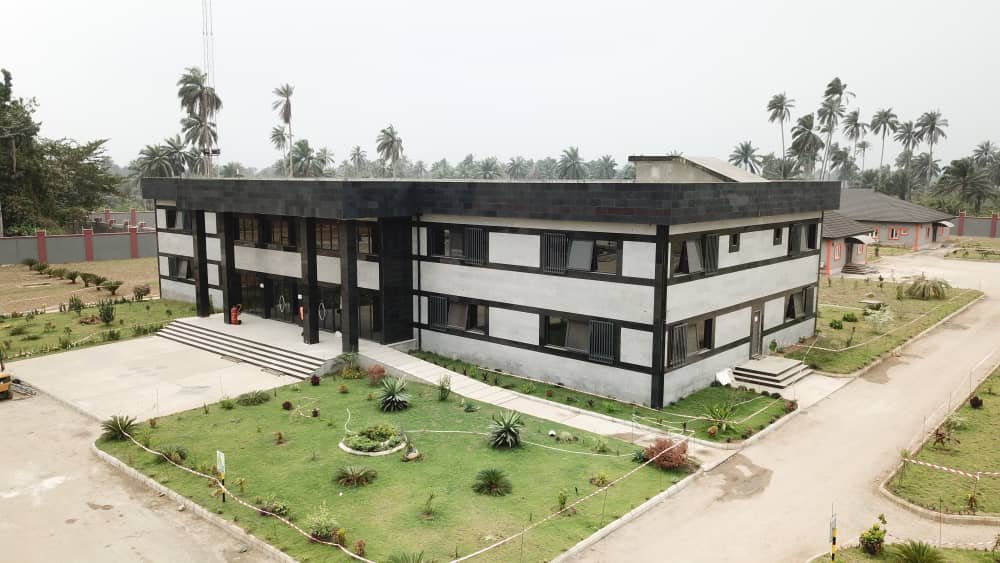
This writer visited the coconut refinery project and work had indeed reached an advanced stage. An indigene of the community and Assistant Safety Officer at the project site, Unyime Oliver, expressed gratitude to Governor Udom Emmanuel for having the once neglected Mkpat Enin in his development plan, which has granted youths of the community the opportunity to use the knowledge and skills acquired in School to work. The Warehouse Manager, Ibanga Nsisong averred the project as the first of its kind in West Africa, which will rescue over 5000 unemployed youths from awarding of contracts, to direct and indirect labour. Other workers recounted the challenges of job hunting they faced before the project commenced and described the project as a welcome development that will engage and create wealth for the youths of the community and the people of Akwa Ibom State.But the Health and Safety Supervisor, Mr Aniekan Samuel Peters, went a step further when he thanked the State Government for always releasing funds for equipment to ensure an accident free working environment and prayed for the sustainability of the project beyond the lifespan of the present administration.
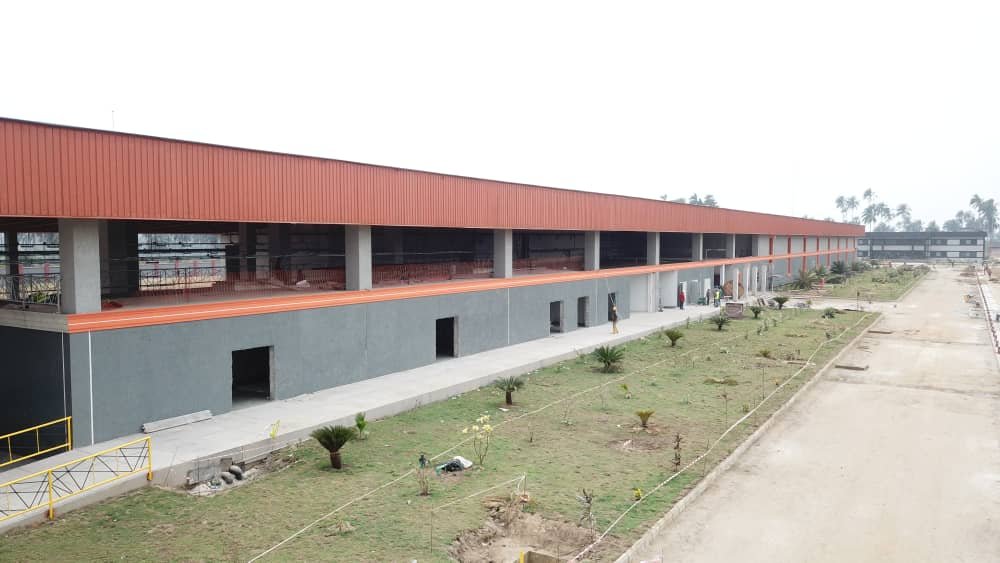
The refinery itself, according to the Managing Director of VKS Nigeria Construction Limited, Onur Kumral, sits on a total landmass 78,487 square meters earmarked for the refinery, and this further shows the seriousness at a time when oil from coconut is more expensive than crude oil.
Aggressive construction began in 2017 after the flag off, and on September 25, 2018, Governor Udom Emmanuel inspected the level of work at the coconut refinery project site. Impressed at the pace of work, Governor Udom Emmanuel explained that the foreign market is already ready for the produce of the refinery and described the project as the biggest in Africa, and another project of his administration that will elevate the youths of Akwa Ibom state.
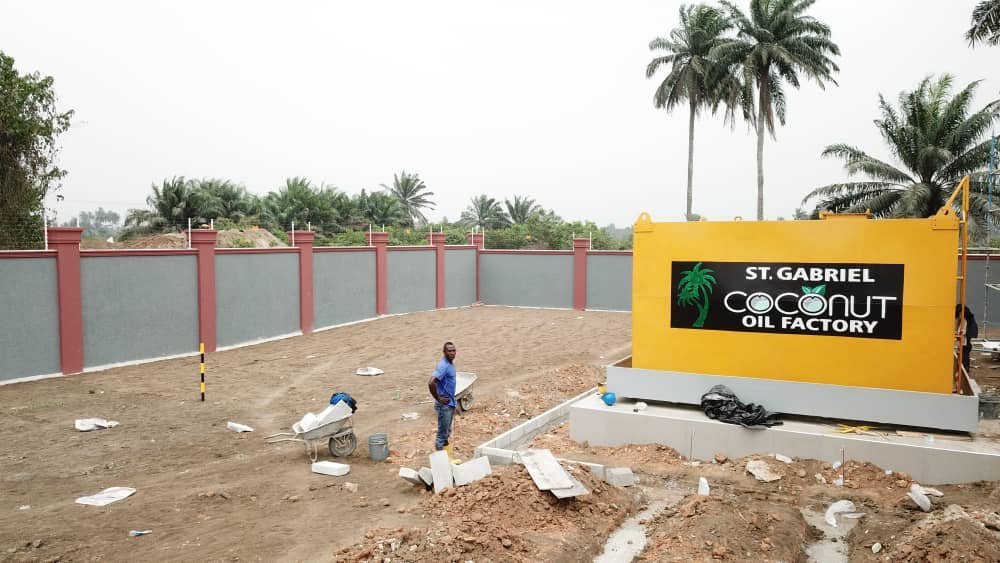
Speaking with newsmen shortly after the inspection, Governor Udom Emmanuel explained that the facility will employ thousands across the state and that the revenue from coconut oil surpasses the revenue from crude oil daily. He furthered that the refinery which will also process palm kernels, will give birth to smaller factories that will process other parts of the coconut fruit.
The facility boasts of administrative offices, production areas, technical spaces, industrial firefighting systems, water treatment plants, effluent treatment plants and residential quarters for technical and managerial staff as well as Green parking areas for tractors carrying raw materials.
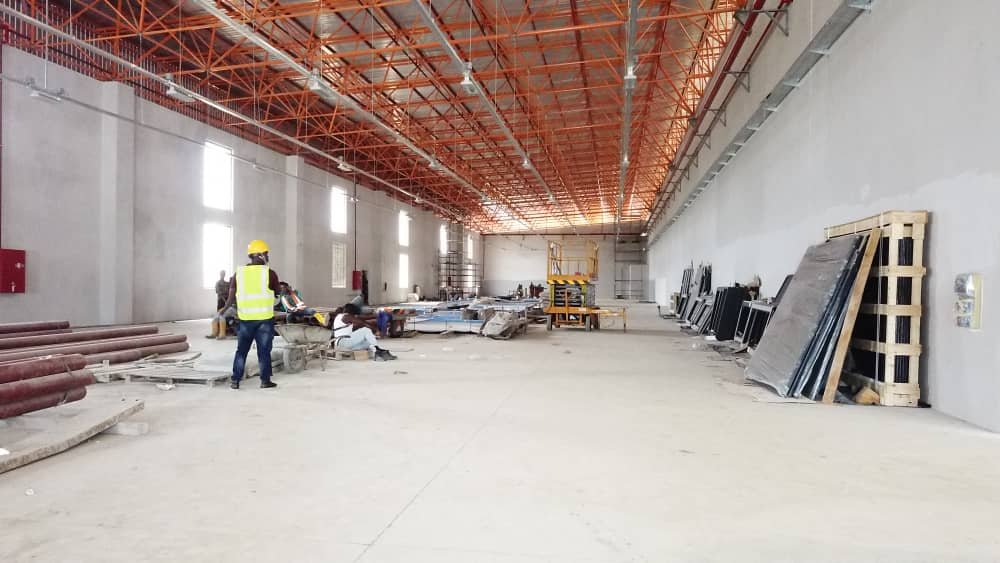
If the factory is billed to process and refine over one million coconuts daily, is the state ready to provide the raw materials to feed production? There is the state coconut plantation on 11,000 hectares of land at the Eastern Obolo, Ikot Abasi, Mkpat Enin axis of the state which is meant to accommodate over two million coconut trees. Already, a clarion call has been sounded to all farmers in the state to cultivate coconut as it will be a major revenue spinner in the State’s economy in few months . To show the imperatives of this, the state government had few months ago directed all local government authorities in the state to dedicate at least 50 hectares of land for the cultivation of coconut while 230 public schools were also directed to plant at least 300 coconut trees in their respective premises. But all of these will still not be enough to feed the factory, meaning that all the coconuts produced in Nigeria and neighbouring African countries will have to find their way to the emerging coconut processing hub.
Following his visit to the state recently, renowned journalist and columnist Sam Omatseye had this to say about the Refinery in a piece titled ‘The Udom Challenge’, published in the Nation Newspaper of March 16, 2020, “For a region that teems with forests, it is open for work. The St Gabriel Coconut refinery is still under construction, with work at an advanced stage. It plans to refine 300,000 coconuts a day. This hub will spur agricultural work and employment to feed this buzz of factory needs. All over the state, Governor Emmanuel touts his completion agenda. He has challenged himself. To set up an infrastructure work is one thing, to turn them into fruits is another. Harvests, however, are afoot already.”
Governor Udom Emmanuel has indeed shown that his industrialization agenda in Akwa Ibom, is not a hoax. At least the giant flying birds, Ibom Air attest to the sincerity and commitment of his administration to match policies with action.
Apart from the Kings Flour Mill, the Jubilee Syringe Manufacturing company, Lion Plywood/Timber Manufacturing Company, the rice mills, Metering Solutions Company among others industries established by Governor Udom Emmanuel’s administration, the coconut refinery is one that will contribute in skyrocketing the economy of Akwa Ibom State as it gives hope to individual coconut farmers as a ready market for their farm produce and offers direct and indirect benefits to several others.
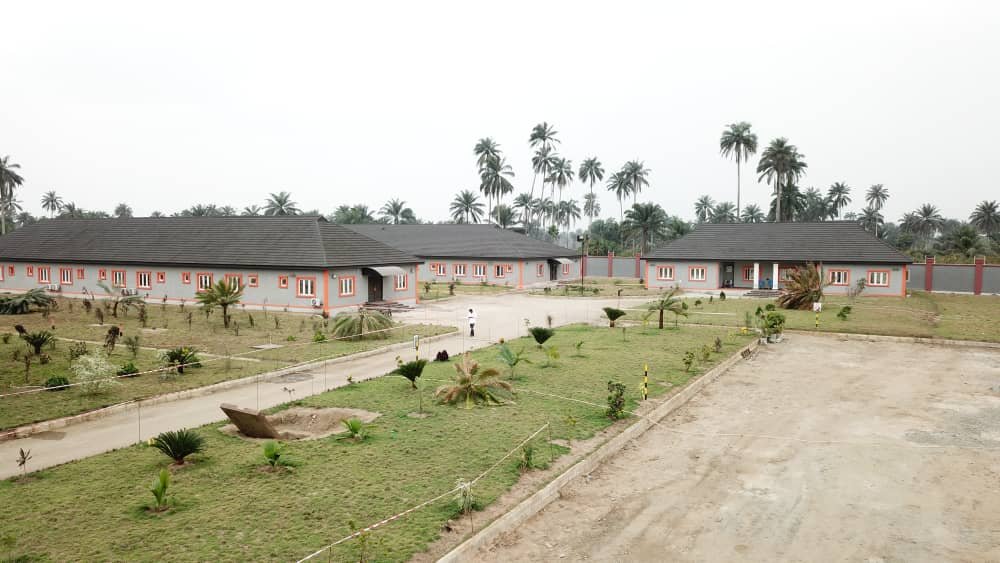
These fit the words of Frank Herbert that “good governance never depends upon laws but upon the personal qualities of those who govern”
Essien Ndueso Writes From Government House, Akwa Ibom State



